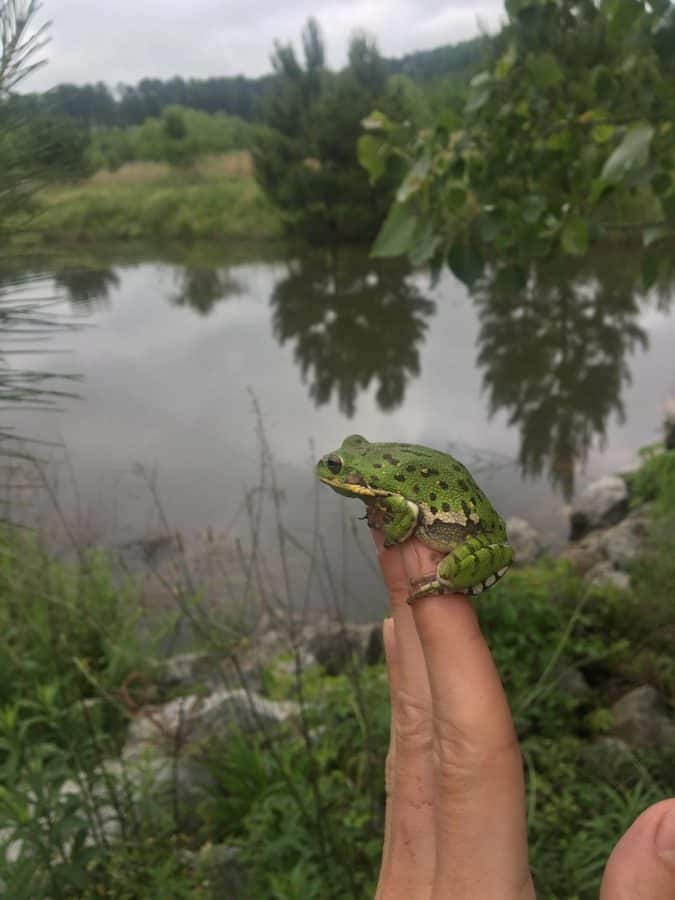‘Hard to overcome’: Why some students are fighting to protect biodiversity in Tuscaloosa
Development comes at a price, and some students and residents fear the city is destroying precious wildlife as it continues to expand.
April 11, 2021
Wesley Neely, a Ph.D. student who studies biodiversity and frogs, sampled a Northport site two years ago. The plot of land, outlined by a large pond and just seven miles from campus, was one of the most biodiverse sites he had studied during his time at the University.
Now, it’s a parking lot.
“That site had, by far, the highest diversity of frogs,” he said. “There were over 10 different species of frogs all breeding at the same time. That pond was supporting a lot of life.”
It also protected people from illness.
Since tadpoles are one of the largest consumers of mosquito larvae, eliminating a wetland that supports frog species causes mosquitoes to increase. This can lead to the transmission of mosquito-borne diseases such as the Zika virus.
Nelson Brooke, riverkeeper of the Black Warrior River, said it’s important to protect all creatures living in natural habitats. He works to research pollution problems in the Black Warrior River, which currently holds 127 species of fish, 15 species of turtles and more than 30 species of mussels — including the threatened heel splitter mussel.
Brooke said that Tuscaloosa residents appreciate this ecosystem.
“It’s nice to see the city and its residents embrace the natural aspects of the riverfront and uphold the river as an amenity for all to use and enjoy rather than for a few to exploit,” he said. “If we don’t preserve it then we’re losing a key vital part of our natural heritage.”
Areas like the Black Warrior River are not only enjoyable for residents and help combat disease, but wetlands also purify drinking water.
David Gleason, a high school senior attending UA’s New College in the fall, said that in the case of biodiversity, citizens need to work to maintain the status quo. Gleason spends his time promoting biodiversity by working at Jeremiah’s Garden, a Northport food forest that aims to teach children and the community the art of gardening.
“It’s important for an ecosystem to stay the same,” he said. “Having biodiversity helps keep the rest of the ecosystem alive.”
With the onslaught of new housing and business developments around Tuscaloosa, deforestation is common. Neely said this takes a toll on the environment and his mental health.
“When you see an area that is so full of Iife get completely destroyed in order to build a parking lot, it can be hard to overcome,” he said.
Brooke stressed that there are things Tuscaloosa citizens can do to look out for these ecosystems, like advocate for policies that protect natural areas. He said that is important because habitat destruction and pollution are threats to biodiversity.
Gleason recommended that students and community members walk around parks to get inspiration for what they could plant in their communities.
While that can help, Brooke said Alabama faces a bigger problem. In 2017, the Environmental Protection Agency ranked Alabama as the fifth-highest producer of industrial toxic pollution in the United States. There were 11.2 million pounds of toxic releases into waterways.
In 2019, the Alabama state senate proposed a bill that would ban regulation on plastic bags which are harmful to aquatic ecosystems. The bill was never brought to a vote – helped, in part, by environmentalists speaking out against it – but Brooke noted a larger point.
“We are too consumptive and therefore too polluting,” he said. “We use a lot of stuff and we produce a lot of waste. That’s just the way our society is living right now.”
After the Bankhead Lock and Dam, or Lock 17, was placed on the Black Warrior River for commercial barge traffic, some species, like Cahaba lilies, were damaged beyond repair. Brooke said he believes this not only hurts the community, but the state of Alabama.
While gardening and reducing waste can be helpful to fighting against declining biodiversity, Neely said the solution to the problem is political.
“People need to vote in local elections,” he said. “We need to vote for people who will put the environment first.”
After 18 years of working with the Black Warrior River, Brooke said he still feels motivated to fight for a biodiverse community.
“Despite the environment’s long history of being dammed and polluted, there’s still a lot of life out there,” he said.








